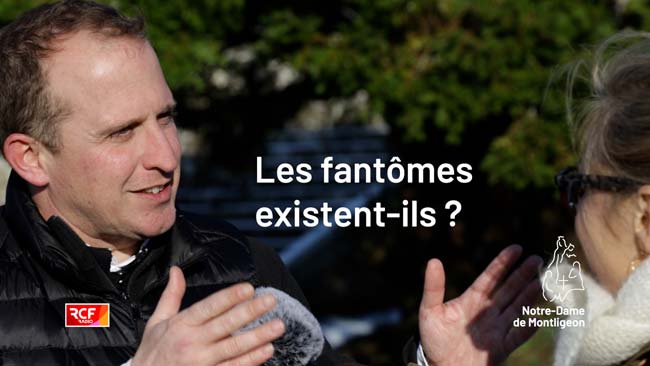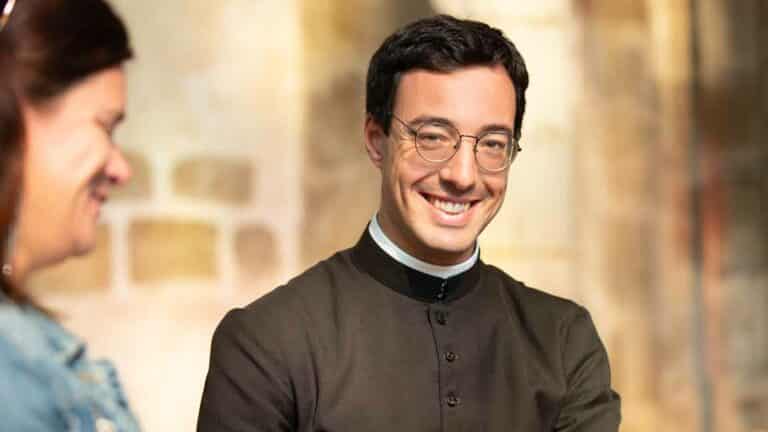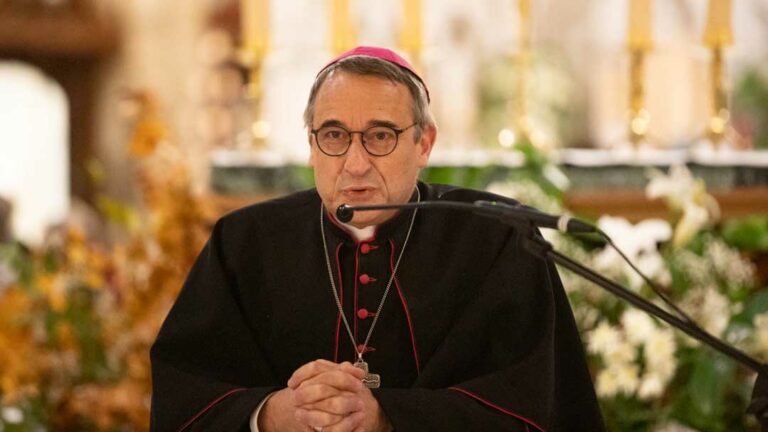Slamming doors, noisy shuffles, familars and other unexplained presence… the stories testifying of those strange, blood-curdling phenomena are countless. Are ghosts real? We asked don Paul Denizot, for RCF’s Sanctuaires normands program.
I find our contemporaries’ infatuation with those topics fascinating, even though we live in a materialistic world where no one believes in the invisible any more. And yet, in our secularized western world, people continue to be mesmerized by ghosts and spirits. What is the reason? Is it to scare ourselves, like those people who visit old mansions at night with cameras, or to get a bit of a thrill? Is it out of fear of death? Or simply because we realize that spirituality is still part of our world? In which case, this would be good news. Trouble is, such quest is all over the place and not always rational.
In all cultures, ghosts are the spirits of the dead who come to haunt the living.
The Egyptians, for example, observed strict, rigorous funeral rites. They thought that, unless they performed such rituals, the dead would come back and bother the living. We find the same thing in certain Roman traditions. Pliny, the historian, tells the story of mysterious noises in a house which led to the discovery of bones. He says that burying the bones in a dignified manner put an end to the noise.
This belief in the permeability between the world of the living and that of the dead is widespread in many cultures, particularly in Africa. It raises the question of the relationship between boths worlds.
Ghosts are a very romantic subject in Europe. This goes back to the 19th century, when spiritualism became trendy, and it is quite dark. In fact, I am wondering if the belief in spirits hasn’t replaced the Christian purgatory.
in The Catholics believe that after you die, you’re either in heaven, hell or in a state of purification. There is no intermediate state. The Church doesn’t believe in spirits that would stray here and there like suffering souls.
What does the Church say about ghosts and wandering souls?
There are a few mentions of them in the Old Testament, for example the prophet Samuel being raised from Hades by the witch of En-Dor at the request of King Saul. The prophet enjoins him not to bring him back from the dead, prophetizing that Saul will soon join him.
We have other, more positive stories, such as the high priest Onias, for example, who died and continued to pray for Israel during its persecution. Judah Maccabaeus has a dream where he saw him as an intercessor. Christian revelation goes a step further, claiming that the dead do not wander, but are rather benevolent towards the living. They do not mean to scare us, all they do is to beg our prayers.
Do souls in purgatory decide to appear of their own will?
We can also read testimonies of souls in purgatory who reach out to famous saints, as told in their biograhies. For example St. Faustina in her dreams; Padre Pio in the middle of the day; or St. Stanislaus of Poland, who was regularly disturbed by the souls in purgatory that would come to implore him for his prayer.
Whenever a soul exceptionally manifests itself in a place where they used to live is referred to by St Thomas Aquinas as divine permission to ask the living for prayers.
The souls in purgatory cannot wish to harm the living because they are already in God’s pure grace and love. They are saved, that is, free of sin. Just like beggars, they request one and only thing from us – that we pray for them in order to hasten their purification. And the souls in return will pray for us.
- Which advice would you give to those who notice strange manifestations in their home?
- Or to those who are obsessed by the thought of the deceased?
You can read Don Paul Denizot’s advice (in French) in Chemin d’éternité no 320, the magazine published by the Shrine of Montligeon




